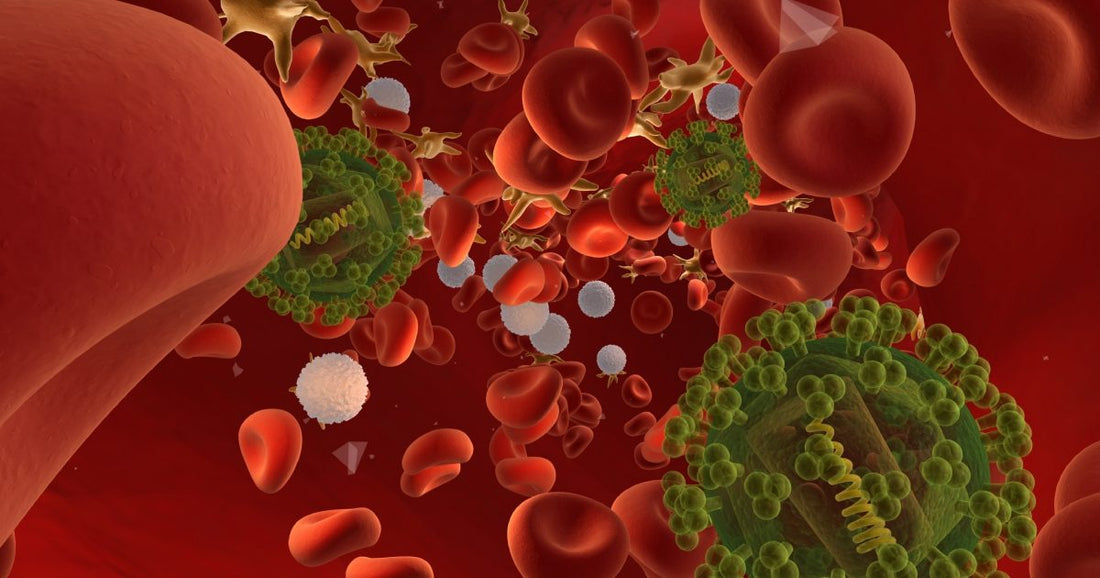
Relation between HPV and HIV
Both HPV and HIV are virus infections affecting humans and cause sexually transmitted diseases. But both are two different medical conditions with no notable links in between.
Definition
HPV: Human Papilloma Virus is a group of about 200 viruses that infects mainly our skin tissues and produce conditions like genital warts, cancers in the oral cavity, cervix, anal region, etc.
HIV: Human Immunodeficiency Virus is a type of virus that attacks the T cells of the human immune system and produce immune deficiency eventually leading to AIDS.
Mode of spreading
Many types of HPVs affect the mouth, throat or genital area. They are easy to affect us. Even though it's also an STD, penetrative sexual contact is not necessary for its spreading. It can be transmitted by even skin to skin contact in the genital area. It can spread via oral and anal sex as well. Sharing sex toys is another mode of transmission of HPV.
HIV spreads through body fluids of an infected person like semen, vaginal discharges, anal discharges, blood, and breast milk. It cannot survive outside the human body for a long time. Most common transmission methods of this infection are through anal or vaginal sex without using a condom, sharing needles or other injection equipments with an infected person, or from mother to child during pregnancy, birth, or breastfeeding. However, the chances of spreading HIV through oral sex is less and it depends on factors like oral hygiene.
Complications
HPV causes complications like genital warts with pain and bleeding which may lead eventually to cancers when remains untreated for a long time.
HIV infection leads to other life-threatening infections as it weakens the immune system.
Methods of prevention
One cannot get complete prevention against HPV, but there are things that can help. Condoms cannot provide complete protection as they don’t cover the entire skin around the genital area. Vaccines also protect against only some types of HPV and not all types. People should get the HPV vaccine at the age of 11 or 12 or on or before their 15th birthday.
There’s also a catch-up vaccine available for people up to age 45 who’ve never been vaccinated. It involves getting three injections over a six-month period.
Despite ongoing research, no vaccines for HIV are available. Pre-exposure prophylaxis (PrEP), in the form of daily oral medication, is recommended for people with known risk factors for HIV.
To lower the risk of contracting HIV, it’s important to avoid sharing needles and practice safe sex. Safe sex methods to lower risk include:
- Using a condom when having vaginal, oral, or anal sex
- Getting tested for HIV and other STIs.
Diagnosis
In case of both HPV and HIV, early diagnosis aids early treatment and better cure.
HPV can be diagnosed by methods including;
- Pap smear examination.
- Colposcopy.
- Biopsy.
When you have a Pap test (or “smear”), the doctor will take a sample of cells from your cervix. The sample is sent to a lab and looked at under a microscope. If abnormal cells are found, your doctor may do another Pap test and include a cervical HPV test. This test can identify many of the HPV types that can cause cervical cancer. This is the only HPV test approved by the FDA.
If you have a type of HPV that can cause cancer, your doctor may want to perform a Colposcopy. In this test, he or she will use a special magnifying lens to get a closer look at your cervix. If the tissue looks abnormal, they will cut out a small bit to perform a Biopsy. This test will check for signs of cancer.
HIV can be diagnosed by;
- ELISA test.
- Home test (followed by the consultation of a health professional).
- Saliva test.
- Viral load test.
- Western bloat test.
ELISA Test ELISA, which stands for enzyme-linked immunosorbent assay, is used to detect HIV infection. If an ELISA test is positive, the Western blot test is usually administered to confirm the diagnosis. If an ELISA test is negative, but you think you may have HIV, you should be tested again in one to three months. ELISA is quite sensitive in chronic HIV infection, but because antibodies aren't produced immediately after infection, you may test negative during a window of a few weeks to a few months after being infected. Even though your test result may be negative during this window, you may have a high level of the virus and be at risk of transmitting infection.
Home Tests The only home test approved by the U.S. Food and Drug Administration is called the Home Access Express Test, which is sold in pharmacies.
Saliva Tests A cotton pad is used to obtain saliva from the inside of your cheek. The pad is placed in a vial and submitted to a laboratory for testing. Results are available in three days. Positive results should be confirmed with a blood test.
Viral Load Test This test measures the amount of HIV in your blood. Generally, it's used to monitor treatment progress or detect early HIV infection. Three technologies measure HIV viral load in the blood: reverse transcription-polymerase chain reaction (RT-PCR), branched DNA (bDNA), and nucleic acid sequence-based amplification assay (NASBA). The basic principles of these tests are similar. HIV is detected using DNA sequences that bind specifically to those in the virus. It is important to note that results may vary between tests.
Western Blot This is a very sensitive blood test used to confirm a positive ELISA test result.
Treatment
There is no treatment for HPV. Many people will find that their immune system will fight off the virus successfully. For those that do not, a doctor will treat genital warts or cancer based on individual circumstances.
Primary HPV infections can be treated by simple oral medications and vaginal suppositories. Among them, HPV Basant will be a good option for those who look for an authentic ayurvedic formulation with zero adverse effects and result assurance. It is now available as an easily absorbable capsule form that can be used as a vaginal suppository.
If the infection advances to the next level, other surgical and para surgical procedures can be opted.
In most advanced cancerous stage chemotherapy must be done followed by palliative care.
Healthcare providers can treat HIV with a regimen of medications called antiretrovirals. A person living with HIV will take a combination of drugs to:
- Reduce the total number of HIV cells, known as the viral load.
- Increase the number of CD4 immune system cells.
- Stop HIV from progressing.
- Prevent HIV from transmitting to others.
A person who receives successful treatment will see their HIV cell counts drop to undetectable levels. This means the person’s HIV is not progressing and they are no longer able to transmit HIV sexually.
Antiretrovirals do not cure HIV, and some HIV remains in the tissues. For this reason, a person needs to continue taking HIV medication lifelong to prevent transmission and HIV progression.
Outlook
A person’s immune system can often fight off HPV with no negative symptoms. Others may experience outbreaks of genital warts, which a doctor can treat when they arise. The outlook for a person with HPV-related cancer varies depending on a person’s risk factors and the stage of the cancer.
There is no cure for HIV. However, due to modern treatment, people with HIV can have a normal quality of life. A person will need to take medicine each day and get regular check-ups to make sure the medication is still working, however.
Summary
HPV and HIV are two viruses that people can contract through sexual contact. The symptoms, causes, and treatments for the two viruses are different. Both can lead to other health complications too .
A person with HIV may experience worser symptoms and complications from HPV than a person without HIV. This is due to the effect that HIV has on the immune system.
A vaccination is available to prevent HPV, and it is possible to reduce the risk of contracting HIV with PrEP medication. HPV may present no symptoms, and a person’s immune system may fight off the infection. However, HIV has no cure, and anyone who has the virus will require regular check-ups and treatment.

